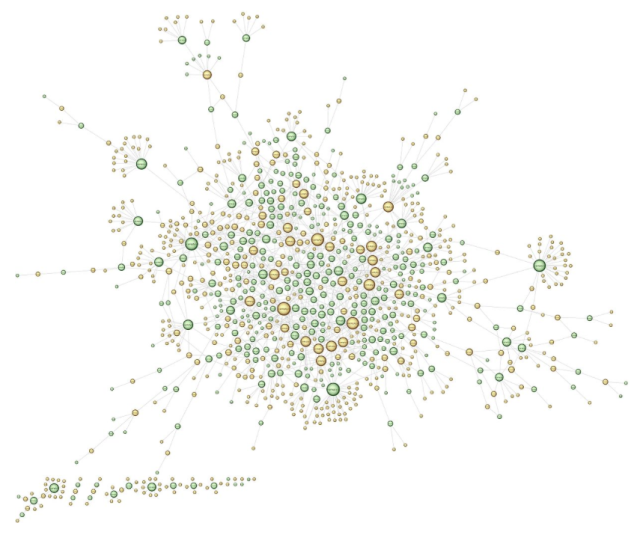
The Wikimedia Foundation, the host of the online encyclopedia Wikipedia, said late Monday that it has suspended 381 accounts or "socks" that it claims accepted or charged money "to promote external interests on Wikipedia without revealing their affiliation." The foundation said that it believed that activity from so-called "sockpuppet" accounts "were perpetrated by one coordinated group."
The foundation said that volunteer editors spent weeks investigating what it said was a violation of its terms of use.
"The editors issued these blocks as part of their commitment to ensuring Wikipedia is an accurate, reliable, and neutral knowledge resource for everyone," Wikimedia said in a statement.
The group said as many as 210 articles were also deleted in the process.
"Most of these articles, which were related to businesses, business people, or artists, were generally promotional in nature, and often included biased or skewed information, unattributed material, and potential copyright violations. The edits made by the sockpuppets are similar enough that the community believes they were perpetrated by one coordinated group," the foundation said.
The English version of Wikipedia issued its first conflict-of-interest guidelines in 2004. In 2013, the Wikipedia volunteers blocked hundreds of accounts in connection to the consulting firm Wiki-PR.
The group described the latest investigation:
There are 381 socks currently being blocked as a result of this investigation. All of the socks are linked by both technical data and behavioural evidence. The list of socks has been posted at Wikipedia:Long-term abuse/Orangemoody/Accounts. All of these blocks are checkuser blocks. They are being performed by EgressBot using a standardized block summary and user talk page template, so that reviewing administrators and editors will be able to identify that they are part of this group. A copy of the block summary and template is posted on the page listing the identified socks. Unblock requests can be brought to the attention of checkusers; this can be done by posting a link at the SPI talk page. It will take the blocking bot approximately an hour to complete all of the blocks; if for other behavioural reasons an administrator needs to block any of the accounts in the interim, the block will be superseded by the bot with the applicable summary and template. The same will apply to any accounts that have already been blocked.
The socks all exhibit at least one of the following behavioural traits:
"Article creation" socks create articles in draft space or user space mainly based on submissions to Articles for creation that had been declined, or articles that had been added to article space and deleted as being too promotional. These articles do not give proper attribution to the original authors. There are occasional variations to this process. Most of the articles created in this way have been moved to article space; a few are still in draft or user space.
"Helper" socks will usually complete a series of useless edits in order to be autoconfirmed. They then continue making gnoming-type edits that will periodically include the addition of spammy external links. Some of these socks also participate in Page Curation, and they will “mark reviewed” articles created by the other socks.Examples of "useless edits" include adding {{italictitle}} or wiki-linking words like Asia and United States, or making minor formatting changes.
The groups are not entirely distinct and some socks have acted as both article creators and helpers.
The foundation, however, cautioned that not all paid editing is a breach of the site's terms.
"Many museum and university employees from around the world edit by disclosing their official affiliations, and several prominent public relations firms have signed an agreement to abide by Wikipedia’s paid editing guidelines. Editing Wikipedia is completely free, and only requires compliance with the project’s editorial guidelines," the foundation said. "If someone does have a conflict of interest or is uncomfortable editing the site directly, there are several other options to bring the subject to a volunteer’s attention."
Listing image by throwthedamnthing
reader comments
34